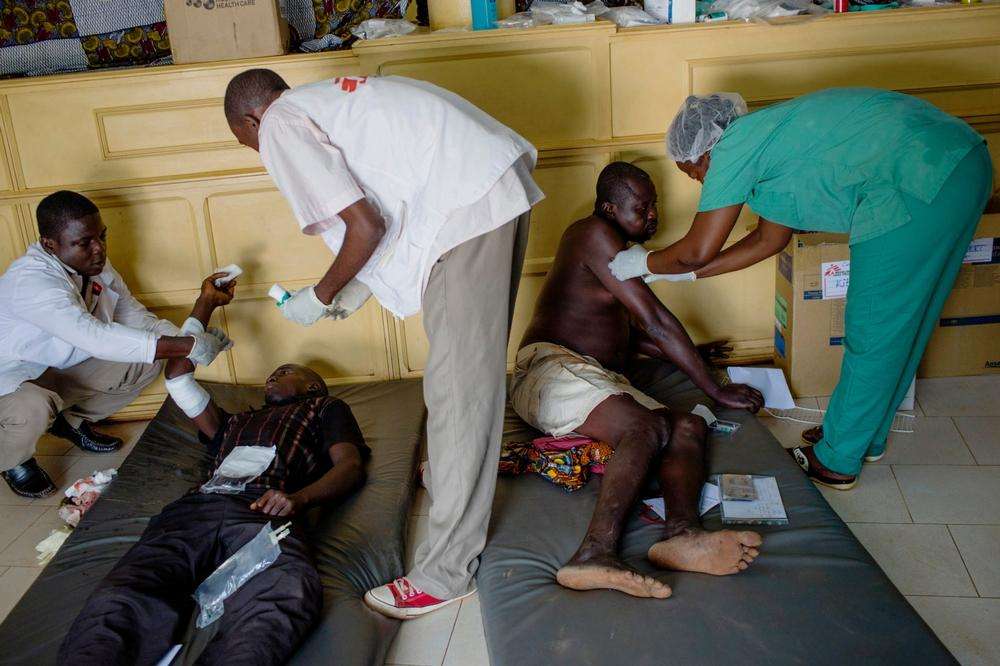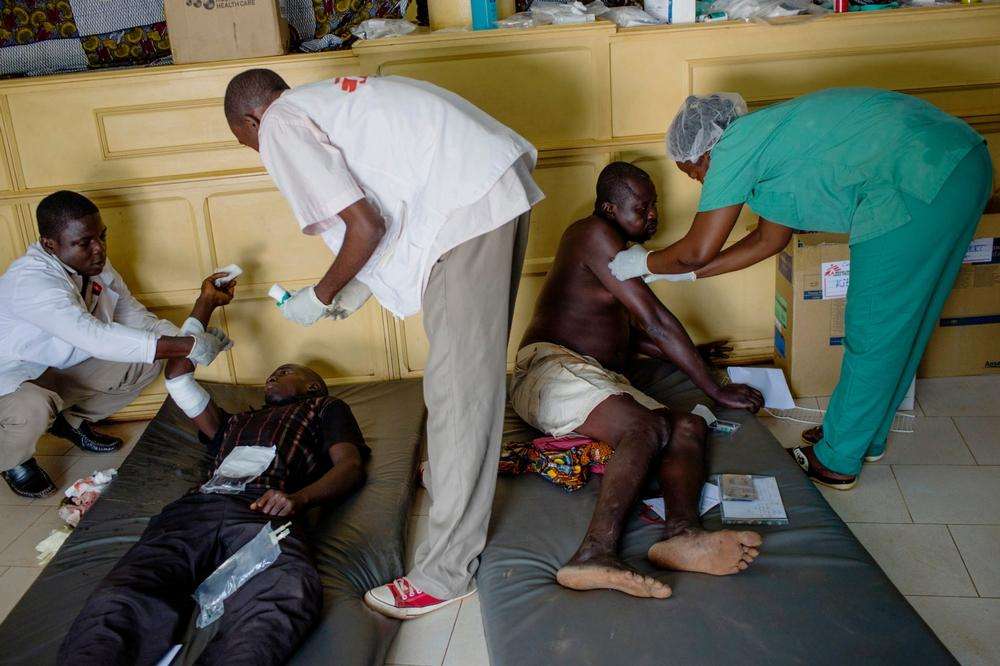BANGUI, CENTRAL AFRICAN REPUBLIC—An eruption of retaliatory violence has engulfed the capital of Central African Republic (CAR) following the killing of a motorcycle taxi driver on September 26, wounding scores of people and blocking access to emergency medical care, the international medical humanitarian organization Doctors Without Borders/Médecins Sans Frontières (MSF) said today.
MSF teams in the city's M'Poko displaced persons camp, Castor Maternity Hospital, and Bangui General Hospital activated their emergency and mass casualty plans to respond to the influx of wounded. From September 26 to 28, 84 patients were treated or stabilized in the health centers at M'Poko and Castor, and 97 wounded patients were admitted to Bangui General Hospital, one of the few local reference hospitals with trauma and surgical capacity.
"Fifteen were severe cases and two were already dead when they arrived," said Thomas Lauvin, MSF medical coordinator in Bangui General Hospital. "Most had gunshot wounds, but we also treated people with wounds from hand-held weapons and grenade explosions. So far 45 patients have required surgery."
The unrest has included large demonstrations against the current interim government, clashes against international peacekeeping forces, mass crowd movements, roadblocks in many locations, and the looting and destruction of buildings, including the compounds of international aid organizations.
"Because of the insecurity our ambulances can no longer move around town," said Emmanuel Lampaert, MSF head of mission in CAR. "If possible, we try to organize for patient transfers to or from our facilities in taxis. But most of the sick and wounded patients now have to rely on their own means to cross town, either by foot or by motorbike."
On September 27, with all access roads blocked, wounded people from the neighborhoods around the PK5 enclave, Castor, and M'Poko could not be transferred to Bangui General Hospital and several people died while awaiting secondary medical care.
On September 28, not a single woman came to the Castor maternity unit to give birth, which typically sees 30 deliveries per day.
"Given the situation around town, the number of wounded reaching our medical teams seems strangely low," said Lauvin. "Unfortunately, we think right now many people have no way to reach the emergency medical care they need; they cannot safely move to health facilities, and we cannot move out to reach them."
The violence and insecurity has also forced many people in Bangui to leave their homes and move to already-existing displaced persons camps, including to the large M’Poko camp near the international airport, where MSF has witnessed several thousand people arrive over the past few days.





